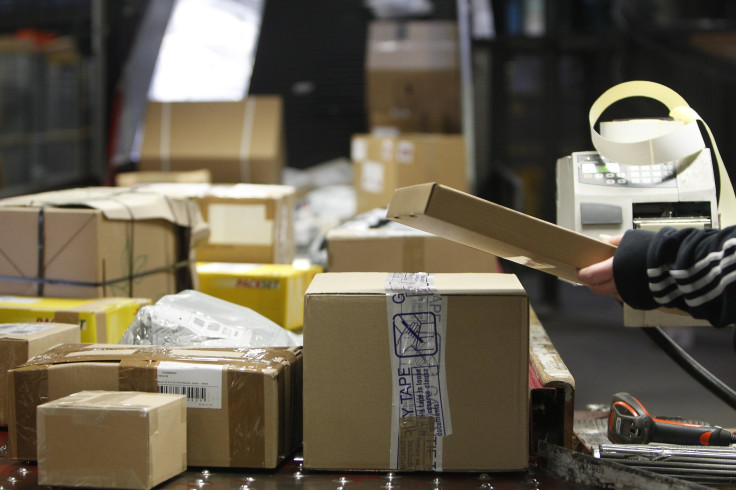Alphabet vs Amazon: Is Google The E-Commerce Giant’s Biggest Competitor?

Google has long said that Amazon (NASDAQ:AMZN) is its biggest competitor. The e-commerce giant has been winning a greater and greater share of valuable product searches from the online search leader.
But when Amazon's shareholders are considering its competition, the Alphabet (NASDAQ:GOOG) (NASDAQ:GOOGL) company isn't typically top of mind. Most would first think of other retailers.
But Baird analyst Colin Sebastian argues Alphabet is actually an "e-commerce powerhouse." In a note to investors he wrote, "Already influencing roughly one-third of e-commerce volumes, Google Shopping should become an even more important growth driver for Alphabet as an alternative to [third party] marketplaces."
Google has the potential to become an essential partner to any retailer trying to compete with Amazon, which might make it Amazon's biggest competitor.
How consumers search for products online
When shoppers begin a product search online, 49% start on Amazon.com, according to a recent survey from Civic Science. That's compared to 22% of respondents who said they start on Google.com. Just 13% said they typically start somewhere else. (The remaining 16% said they don't shop much online.)
Importantly, when it comes to people who don't subscribe to Amazon Prime, Amazon and Google are about neck-and-neck -- 37% of respondents favored each. Other retailers face an added hurdle when it comes to winning the business of Prime members -- those consumers have already pledged their loyalty. Making sales to non-Prime members will be comparatively easier.
But if a retailer wants to get in front of a sizable audience -- one comparable with Amazon's -- partnering with Google is their best option. It's taking steps to provide more services for those retailers through Google Shopping, which it rebranded and revamped earlier this year. Former PayPal COO Bill Ready will take the lead on that project next month, lending his expertise in partnering with merchants to increase sales by decreasing friction in the checkout process.
Its audience isn't just limited to text searching. Google Shopping integrates with YouTube, so viewers may see ads for related products when watching the world's most popular video-streaming service. It's also integrated with Google's image search. Shopping via visual search and discovery has become increasingly popular through apps like Pinterest and Facebook's Instagram.

Partnering with Alphabet gives retailers access to the millions of homes with Google Home speakers. Shopping via smart speaker has caught on more quickly than expected -- eMarketer estimated that 31 million Americans would do so in 2019. Of course, Amazon dominates when it comes to smart speakers, but Google has the second-largest share of the market.
Only Google has the data to rival Amazon
One key to providing a pleasant online shopping experience the ability to show the right products to the right consumers. Amazon has a massive trove of shopper data that it can use to populate pages that get people to click the "buy" button. No other retailer has the same level of data on its shoppers -- but Google does.
Google data can help retailers use the right product images and pricing. It can also help consumers find the product they're actually looking for when shopping with their voice or on mobile, where product discovery may be more difficult.
On top of that, Google has lots of payment information already. Its Google Wallet is built into Chrome and Android -- the most popular web browser and mobile OS, respectively. As such, Google is able to offer a seamless checkout experience. It will also take the lead on communicating with customers on behalf of retailers when they make purchases through Google Shopping.
Can Google take on Amazon?
Google can give retailers a fighting chance against Amazon, which increasingly dominates e-commerce. But it can only offer to match the capabilities of Amazon at best.
And importantly, Google doesn't offer a way for retailers to compete with Amazon Prime. Among weekly Prime users, 79% start their product searches on Amazon, and 65% of other Prime members start on Amazon as well. Meanwhile, the company is taking steps to make Prime shopping a weekly habit for more shoppers through one-day delivery on sub-$5 items and free grocery delivery from Whole Foods.
Google may be retailers' best option for becoming competitive online, but until a rival develops a program on par with Prime, Amazon won't need to worry.
This article originally appeared in the Motley Fool.
Adam Levy owns shares of Alphabet (C shares), Amazon, and Facebook. The Motley Fool owns shares of and recommends Alphabet (A shares), Alphabet (C shares), Amazon, Facebook, PayPal Holdings, and Pinterest and recommends the following options: short January 2020 $97 calls on PayPal Holdings. The Motley Fool has a disclosure policy.





















